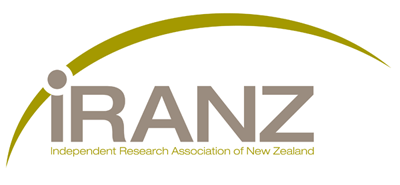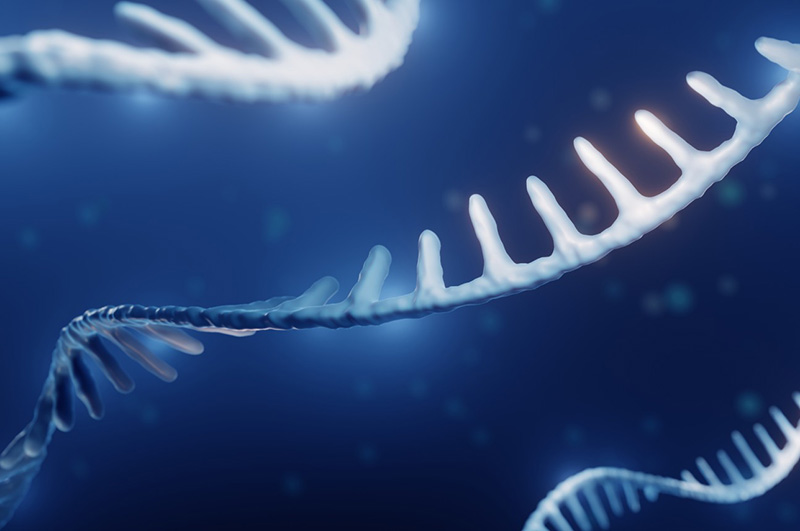IRANZ news briefs
Malaghan: Funding boost for RNA research
The Malaghan Institute of Medical Research and the University of Otago are supporting a new government-funded Ribonucleic Acid (RNA) Development Platform, to be co-hosted by Victoria University of Wellington and the University of Auckland. Dr Kjesten Wiig of the Malaghan Institute and Professor John Fraser of the University of Auckland are the interim co-directors of the platform.
RNA technologies played a key role in the development of COVID-19 vaccines and this breakthrough has created significant opportunities for the technologies to be used in novel therapeutics, diagnostics, and vaccines. These technologies will also have application in other fields, including animal health and agriculture.
Initial funding of $500,000 is being provided to the RNA Development Platform to prepare a seven-year research plan. This plan will be supported by a further $69.5 million over seven years to support capacity- and capability-building in the sector.
The platform will bring together RNA researchers from around the country.
Bragato: Cyclone impact on vineyards
How lessons learned from Cyclone Bola can help in the aftermath of Cyclone Gabrielle
In 1988, Cyclone Bola caused extensive damage to the North Island in the regions of Gisborne and Northland. The destruction caused by both cyclones was similar in many respects: flooding, silt deposition in vineyards around harvest time, damage to the trellis system, vines falling over, or, in extreme cases, vineyards completely destroyed. Some remediation and recovery approaches applied with Bola are relevant to the damage experienced by Cyclone Gabrielle.
Researchers at Bragato have put together a fact sheet which addresses typical vineyard issues associated with the storm damage along with suggested solutions, gathered from growers who dealt with Cyclone Bola in 1988. They are not prescriptive but should be adapted to specific situations given that the extent of the damage may vary within a single vineyard block and across different vineyards within the same area.
Dragonfly Data Science supporting safer cycling in Wellington
Cycle Wellington is calling on local businesses to offer their support for Paneke Pōneke – Wellington City Council’s bike network plan. We’re all for it!
The council’s goal is for Wellington to be a city where it’s easy for everyone to choose low or zero carbon transport options. Changes include a citywide network of connected bike and scooter routes, walking improvements and changes to public transport.
An informal survey of 14 of our Wellington-based staff found that six people mostly walk to work, three use a bike or e-bike, three take public transport and two need to use a car because of family commitments or location.
Dragonfly’s founder and director Edward Abraham is a committed cyclist, having commuted from Island Bay to the city for many years.
“We’ve got road bikers, mountain bikers and e-bikers in the Wellington team. Because of our central location it’s been easier for us to make space for people’s bikes here in the office than encouraging other forms of transport.”
Cawthron: Nelson-based ocean cluster to accelerate blue economy
Cawthron is a founding partner of Moananui, a new organisation based in Nelson focused on accelerating the growth of the blue economy.
With government co-funding, Moananui’s aim is to enable businesses, government bodies, and other experts to work together to fast-track growth of the ‘blue economy’ – marine activities that generate economic value and contribute positively to social, cultural, and ecological wellbeing. More than 400 marine-related businesses and more than 30 percent of New Zealand’s fishing, aquaculture, and seafood processing are based in Te Tau Ihu (the top of the South Island), making Nelson the natural place to establish the cluster.
Gillies McIndoe: Glioblastoma cancer studies
Gillies McIndoe Research Institute's PhD students Freya and Jasmine recently presented a progress update on their glioblastoma cancer studies to Gillies McIndoe’s collaborators Dr Agadha Wickremesekera and the Neurosurgical team at the Wellington Regional Hospital Te Whatu Ora Capital, Coast and Hutt Valley. Some of their patients have kindly donated tissue samples, making it possible for Freya and Jasmine to investigate the clinical application of repurposed drugs to treat glioblastoma.
Read more about Gillies McIndoe Research Institute >>
2023 Cawthron Marlborough Environment Award winners announced
Trail-blazing technology to test for disease and environmental issues out in the field has won the Supreme Award at the 2023 Cawthron Marlborough Environment Awards, announced at the Marlborough Events Centre on 20 April.
Cawthron is proud to sponsor these awards, which have been running for 25 years and are held every two years to showcase Marlborough businesses and community projects that protect and enhance the environment.
Bragato: Sauvignon Blanc Grapevine Improvement Programme at New Zealand Wine Week
Held annually in February, New Zealand Wine Week is a celebration of all things New Zealand wine, from the wines themselves to our industry as a whole. This year, in addition to physical events, New Zealand Winegrowers hosted bitesize 30-minute webinars covering research at the forefront of New Zealand wine, our wine regions, and our country’s commitment to climate change.
Bragato was delighted to contribute to one of the webinars, “Expanding the Scope of Sauvignon Blanc Vine Diversity in New Zealand”. The session looked at how Bragato’s Sauvignon Blanc Grapevine Improvement programme is producing a collection of diverse Sauvignon Blanc vines to screen for key traits using genetic sequencing and nursery trials. The hope is that future local winegrowers will be able to plant new types of locally-developed Sauvignon Blanc vines that improve the resilience, productivity, sustainability, and quality of New Zealand Sauvignon Blanc.
Cawthron scholarship enables Marlborough student to pursue marine conservation
A biologist who found her passion through a school project that won a Cawthron Marlborough Environment Award is nearing the end of a 20-week scholarship working on sea grass research and restoration around Nelson’s estuaries.
Demi Fearn is one of seven tertiary students who gained a place on Cawthron’s 2022/23 summer scholarship programme.
“About half way through last year as uni was coming to an end, I was figuring out what I wanted to do next and I saw the scholarship advertised. I thought ‘wow – this is so me’.”
Demi’s scholarship saw her mentored by scientists from Cawthron’s Restoration Ecology Team, working on a seagrass restoration project that aims to fight climate change and improve ecosystem health with seed-based retoration.
Malaghan visiting researcher: Dr Marcus Robinson
Ten years after completing his PhD at the Malaghan Institute, Dr Marcus Robinson recently returned to share the research he currently conducts as a Senior Research Fellow at Monash University in Australia.
Originally from Whanganui, Dr Robinson came to the Malaghan Institute to do his PhD after studying at Victoria University of Wellington.
“I remember the journal clubs we had at the Malaghan, which were always full of hearty discussion. You had to be sure to prepare by reading the paper beforehand, as the PhD students would be called on at random to present figures from the study. It was a refinement by fire, or at least it felt like it! It proved invaluable training in the longer term,” says Dr Robinson.
With Professor Graham Le Gros as his supervisor, he investigated what can make milk proteins allergens. Specifically, he was studying role of a molecule called IL-4 in the regulation of allergy-causing IgE antibodies.
Gillies McIndoe Research Institute welcomes new PhD student
Gillies McIndoe Research Institute welcomes a new PhD student, Clara López Vásquez.
Clara's study will focus on utilising patient-derived organoids (lab-grown mini-organs) to better understand the molecular & metabolic pathways involved in the development and treatment of Meningioma.
Clara completed her Bachelor's degree in Biology at Universidad Autónoma de Madrid, Spain, where she carried out internships in the Departments of Plant Physiology and Zoology. She studied for a Master's degree in Advanced Therapies and Biotechnological Innovation at Universidad Francisco de Vitoria in Madrid, Spain, while working as a laboratory technician. Clara then completed her Master's thesis and internship in the Department of Experimental Therapies of the National Cancer Research Centre in Spain (CNIO) in lung cancer.
Clara will be supervised and supported by Gillies McIndoe Research Institute's Chief Scientist Dr Clint Gray, Postdoctoral Research Fellow Dr Matthew Munro, and University of Otago’s Dr Claire Henry.
Read more about Gillies McIndoe Research Institute >>
Happy third birthday to the Bragato Research Winery
Three years ago, Bragato’s Research Winery opened its doors for trials, enabling the wine industry to access research winemaking at a scale and degree of experimental control not previously possible in New Zealand. Although the last three years have been challenging, the number of trials has grown each vintage.
New Research Winemaker at Bragato
In addition to their third birthday celebrations, Bragato is delighted to announce their new Research Winemaker Ngarita Warden. Well-known on the Marlborough Research Centre campus, Ngarita joins Bragato from the Nelson Marlborough Institute of Technology (NMIT). Ngarita also runs her own business teaching Wine and Spirit Education Trust (WSET) courses, is a certified WSET Educator, and is a WSET Diploma holder.
Date posted: 27 April 2023

